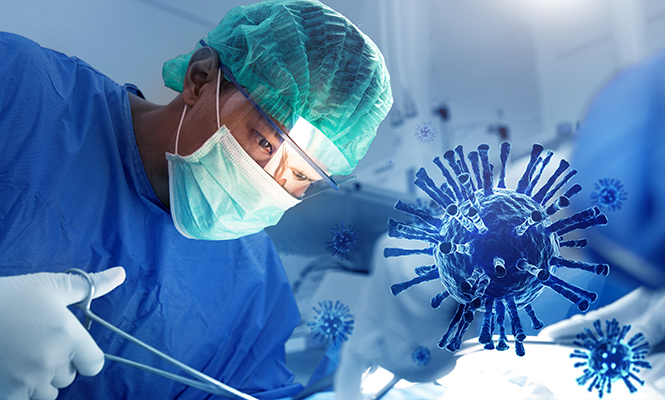The conversation is one that I have had many times. The surgery went well, we achieved our goals, what I saw in surgery, and what the pathologist found on the quick section confirms my suspicions; it is serious and bad news. The next steps will include chemotherapy and radiation, we will be on close watch going forward, we will do everything that we can, I will be with you through the whole of it. There is much life to go, and not enough. No matter how long, it will not be enough.
This time the conversation was by phone. The clarity of the news dependent not only on its too heavyweight but also on the sharpness of the virtual connection. We have all learned that while COVID-19 has stopped the world, the world has not stopped for COVID-19. We have been fortunate so far that, in Toronto, the burden of the pandemic has not required us to attenuate our care of our patients with glioblastoma. The pandemic has, however, strained the manner this work once took place. Loved ones on the other end of a phone line instead of at the foot of the bed or end of the hall. Hopes that warmth of voice and care of tone can replace a held hand or hand on the shoulder. Fears that the mask and face shield makes the news that I have to give all the more severe.
What will this mean for all of us? In the prior era, I made the point to ask my medical students and residents to accompany me during my visit to the family in the waiting room, to make sure that they were with me when I was delivering the impossible news. I thought it critical my students understand that this task is far more important, if not more difficult than the one we had just completed in the operating room. That gross total resection was only a first step to the duty set before us.
The word “doctor” first entered the English language in the early 14th Century, an extension from the Latin word “docere,” “to teach.” The first doctors were theologians approved by the Church to preach and explain its doctrines. It was only with the Renaissance that the word doctor was applied to accomplished academics and finally, medical practitioners.
While I am not religious, I find something very meaningful in the fact that we should take as our defining moniker a term first attached to the church. Our work as neurosurgeons demands many identities as “teacher” — to our medical students, to our residents, but also our patients, our nurses, and one another. Much of our work is what in Emile Durkheim’s terms we would call profane — i.e. the mundane business of pushing life ahead, of checking the coags before surgery, of finding the pseudoplane under the scope. But I would argue that in our continuous extension as teachers, even our profane work asks us to reach for the sacred—to help each other see that which still has mystery, find beauty even in grief, understand those moments in which the narrative appears to be bigger than the anyone of us.
Never for me has the centrality of this demand seemed greater, or more important. Swept up by events beyond our control, we see our lives turned on end by something beyond our reach and learned that human contact is possible, six feet apart, even over Zoom.
I am grateful to my colleagues — physicians, nurses, respiratory techs, and so many others — who have been on the front line during the COVID-19 pandemic. They are heroes to us all. Their willingness to take the burdens of catastrophe has allowed me to continue my day-to-day work as a surgical neuro-oncologist, and appreciate the mundane and innate sacredness of what I do.
[aans_authors]








